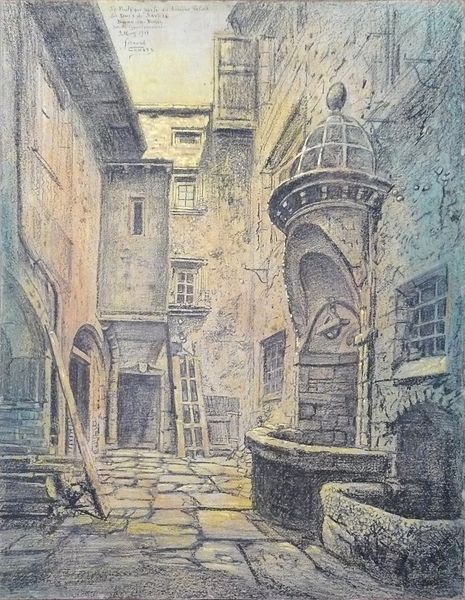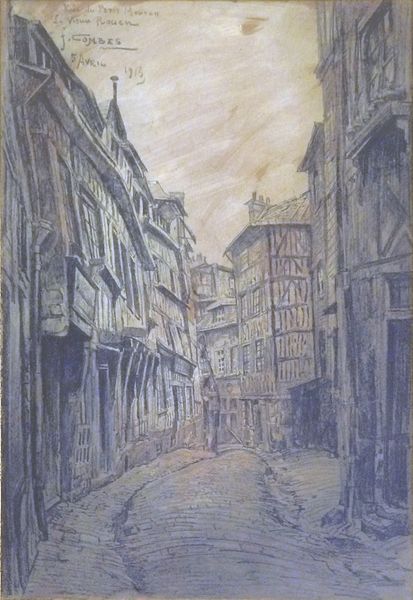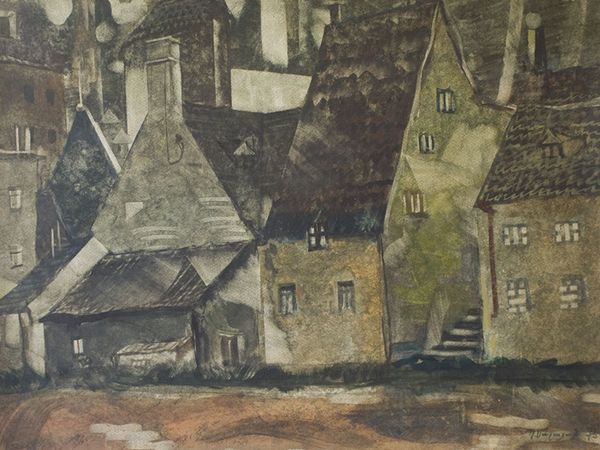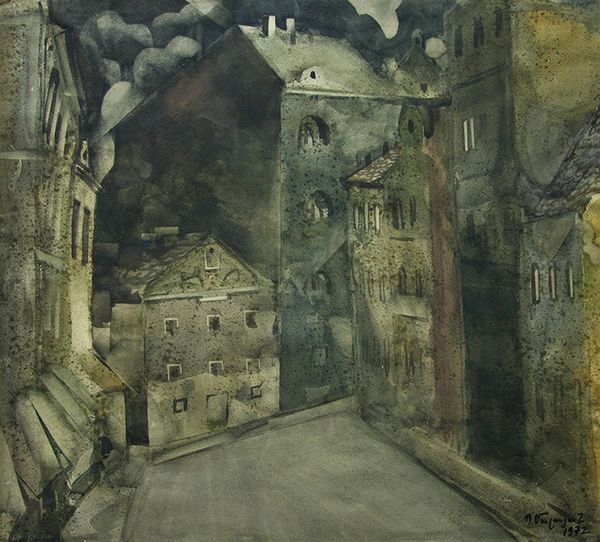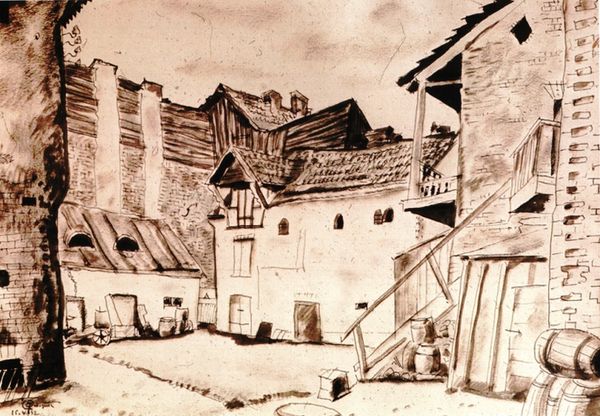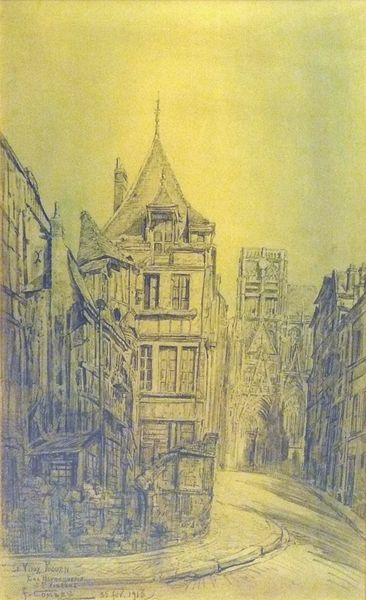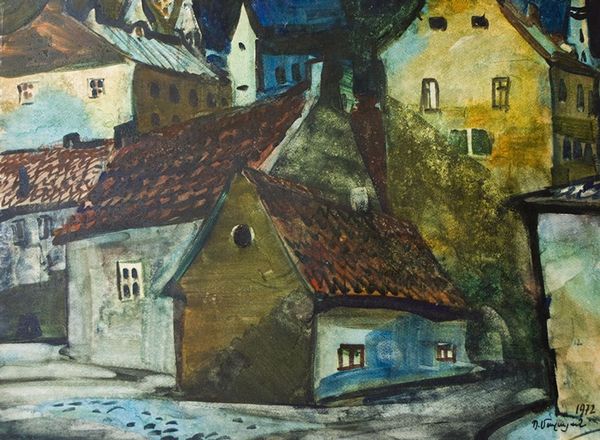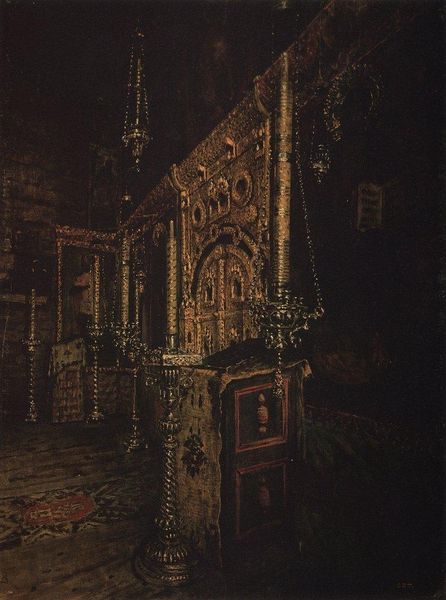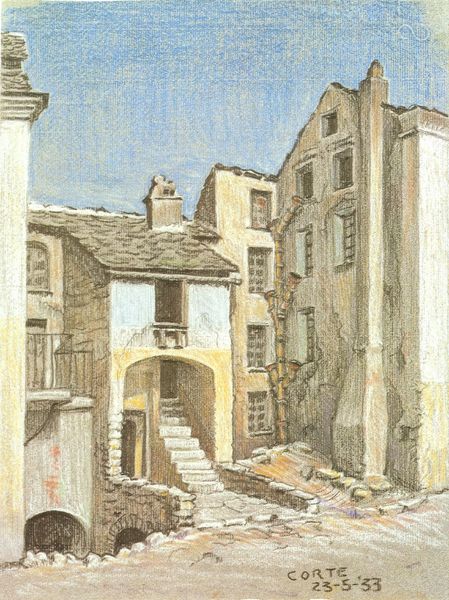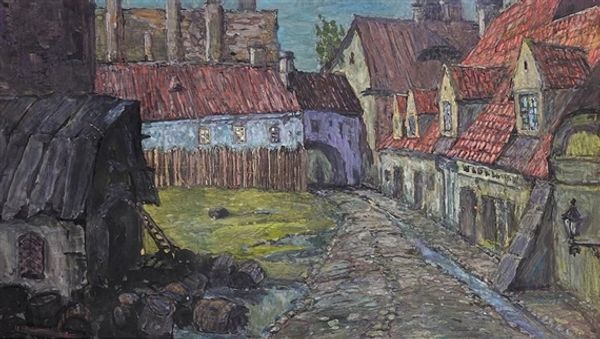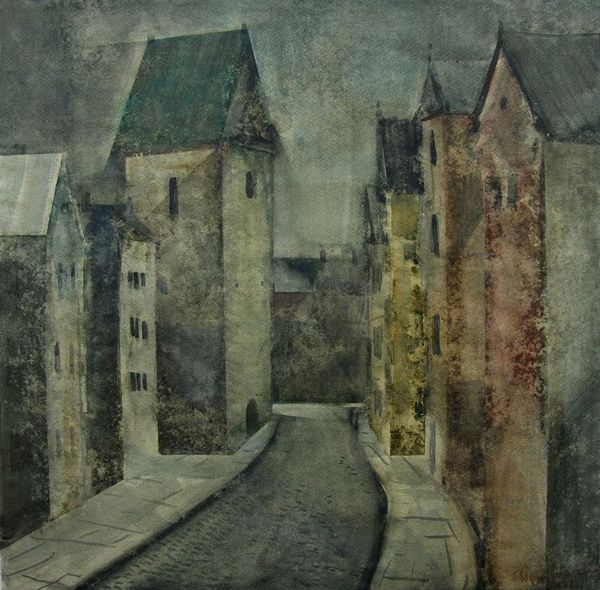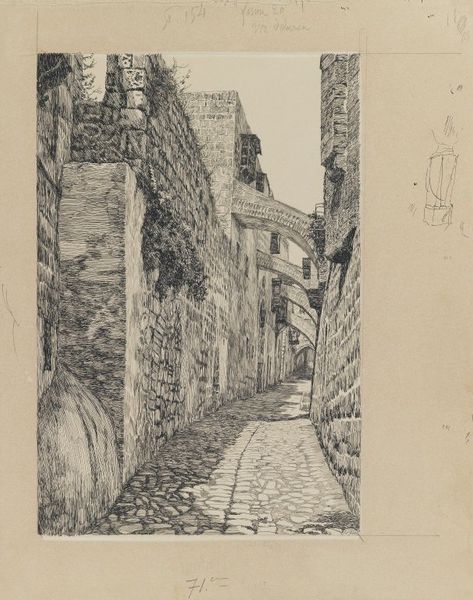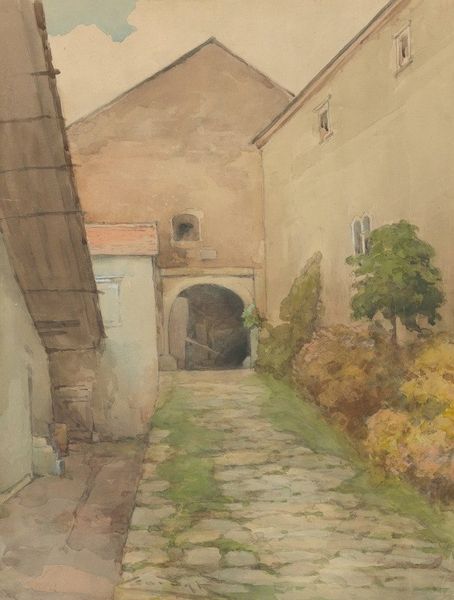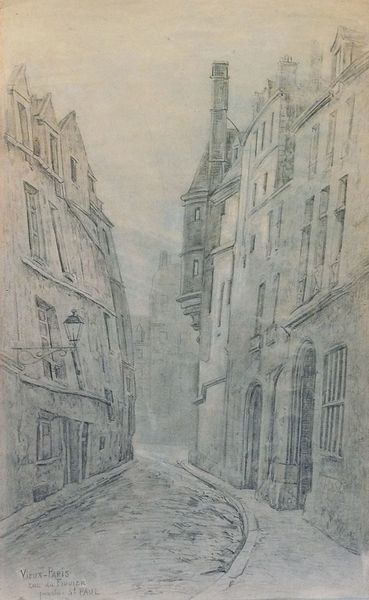
drawing, painting, pencil, pen, architecture
#
drawing
#
painting
#
landscape
#
oil painting
#
pencil
#
pen
#
cityscape
#
architecture
Dimensions: 64 x 48 cm
Copyright: Public domain
Editor: This is Fernand Combes’ “Pérouges, Rue Des Rondes, Le Grenier à Sel” from 1919, made with paint, pencil, and pen. The sepia tones give it an antiquated feel. What jumps out to you about this piece? Curator: Immediately, I’m drawn to consider how Combes captures the specific textures and forms of a medieval village during a period of immense social upheaval following the first World War. Think about the yearning for a simpler, pre-industrial past, a longing to reclaim what was lost. Do you see how the use of varied media-- pencil, pen, and paint-- might speak to these tensions? Editor: Yes, the rough pencil strokes create a sense of unease, contrasting with the smoother paint textures. How does that reflect social upheaval? Curator: Post-war, there's a huge identity crisis. Some looked back to rebuild, and some, of whom Combes might be, tried to build anew from a forgotten past. Look closely at how the architectural detail becomes almost exaggerated. Could it represent a yearning for permanence and stability in the face of widespread change? The drawing romanticizes what once was while critiquing what had become. Editor: So it's less a literal depiction and more a commentary on the artist's perception of that time? Curator: Precisely. Consider, too, the political dimensions: was this a conscious effort to preserve memory and perhaps even resist the forces of modernization that threatened to erase the past? Art like this serves as a kind of quiet activism. What does this evoke in you, knowing more of its cultural milieu? Editor: Knowing that, I feel like it speaks to resilience, the kind you find in marginalized communities clinging to their heritage. Curator: Indeed, a powerful reflection on the negotiation between heritage and modernity. Editor: I’ll definitely look at art from that period with fresh eyes now. Curator: Me too!
Comments
No comments
Be the first to comment and join the conversation on the ultimate creative platform.
